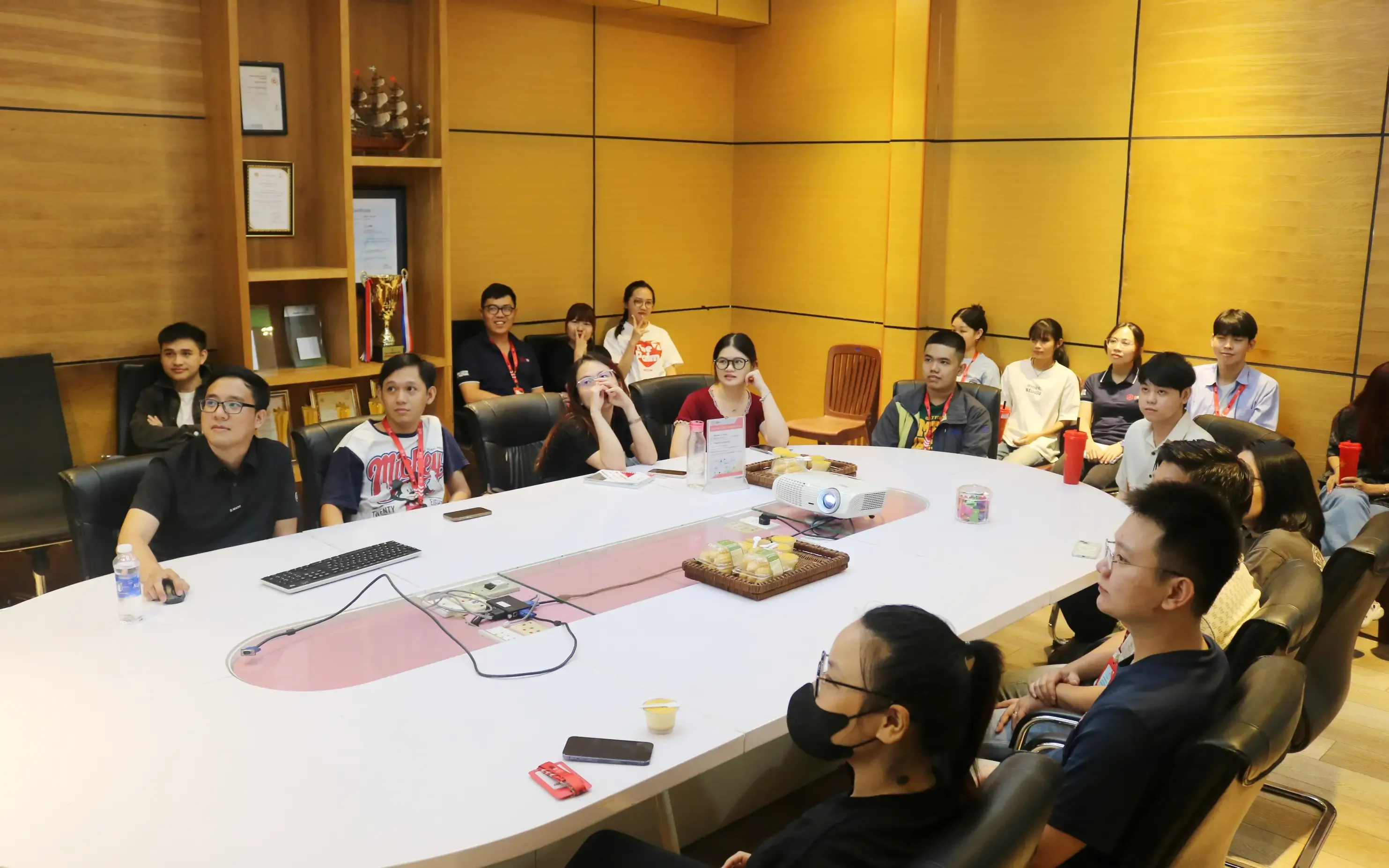Using Playwright AI MCP for Automation Test

News
Using Playwright AI MCP for Automation Test – Technical Sharing
On Thursday, 14 August 2025, S3Corp. organized an internal sharing session focused on “Using Playwright AI MCP for Automation Test.” This session reflected the company’s culture of continuous learning and knowledge exchange, ensuring that team members stay ahead in modern testing practices and automation technologies.
19 Aug 2025
The session aimed to provide a clear understanding of Playwright, its installation process, the execution of basic automation tests, and the integration of AI MCP with Playwright to enhance testing efficiency. Below is a comprehensive recap of the key points covered during the training.

Introduction to Playwright
Playwright is an open-source framework developed by Microsoft for end-to-end testing of web applications. It enables developers and testers to automate browser actions and verify application behavior across multiple browsers, including Chromium, Firefox, and WebKit.
The framework supports multiple programming languages such as JavaScript, TypeScript, Python, Java, and C#. Playwright is known for its reliability, speed, and ability to handle modern web features like single-page applications, shadow DOM, and dynamic content loading.
During the session, participants learned that Playwright offers features such as:
- Cross-browser testing with a single API.
- Automatic waiting mechanism to handle dynamic elements.
- Network interception and request handling.
- Support for headless and headed browser modes.
- Easy integration with CI/CD pipelines for continuous testing.
These capabilities make Playwright a strong choice for teams that aim to improve test coverage and reduce manual effort.
Installation Guidelines
The session provided a step-by-step guide to installing Playwright and setting up the environment for automation testing. The recommended approach involved using Node.js for JavaScript or TypeScript-based testing.
The process included the following essential steps:
First, install Node.js if it is not already installed. After that, create a new project directory and initialize it with npm. The next step is to install the Playwright package using the npm install command. Playwright also provides an option to install browser binaries required for testing.
In addition to the basic installation, participants were shown how to install the Playwright Test Runner, which simplifies test execution and reporting. The sharing also covered installing language bindings for other programming languages when necessary.
Configuration settings, such as specifying browser types and test environments, were also explained in detail. These settings help ensure consistent test results across different platforms.
Basic Playwright Automation Test
The session then moved to creating and executing a basic automation test using Playwright. The example demonstrated included launching a browser, opening a webpage, performing user interactions, and validating page elements.
The steps discussed were as follows:
Start by creating a new test script file and importing the Playwright library. Then, launch the desired browser instance, such as Chromium. After that, open a new page and navigate to the target URL. Perform actions like clicking buttons, filling forms, and capturing text. Finally, include assertions to verify that the expected results match the actual outcomes.
The test example also highlighted best practices, such as using async functions for better handling of asynchronous operations and applying locators effectively to interact with elements.
Participants were encouraged to use the Playwright Test Runner for running multiple tests in parallel, which improves efficiency and shortens execution time. The trainer emphasized how Playwright automatically waits for elements to be ready before performing actions, reducing the need for manual wait statements.
Playwright MCP with AI Integration
A significant part of the session focused on the integration of AI MCP (Model Context Protocol) with Playwright to enhance the automation testing process. AI MCP enables intelligent handling of complex scenarios that are often challenging for conventional automation scripts.
The session explained how AI MCP can assist in scenarios where dynamic content or unpredictable behaviors occur. By leveraging AI-driven context understanding, MCP improves test stability and reduces false negatives caused by timing or environment issues.
Participants were introduced to the basic architecture of MCP and its role in providing adaptive test flows. The sharing demonstrated how MCP can interpret page structures and predict the next steps, making the automation process more resilient to UI changes.
An example was provided showing how Playwright commands can work in coordination with AI MCP instructions, allowing the test script to adjust dynamically when unexpected conditions arise. This integration is particularly valuable for large-scale applications where manual maintenance of test scripts is time-consuming.
Embracing Continuous Learning at S3Corp.
The session highlighted the commitment of S3Corp. to creating a learning-driven environment where knowledge sharing is part of the culture. Regular training sessions like this empower team members to adopt new tools and stay current with technology trends, ultimately enhancing project outcomes and client satisfaction.
By focusing on modern testing frameworks such as Playwright and integrating AI capabilities like MCP, S3Corp. ensures that its teams are equipped with practical skills to deliver high-quality software solutions. This approach reflects a belief that investing in people and learning is essential for sustainable growth.
Such initiatives are not only about acquiring technical knowledge but also about fostering a culture where innovation and adaptability thrive. Continuous improvement and shared learning remain central to S3Corp., reinforcing its position as a trusted technology partner in delivering superior software development and testing services.



_1746790910898.webp&w=384&q=75)
_1746790956049.webp&w=384&q=75)
_1746790970871.webp&w=384&q=75)
